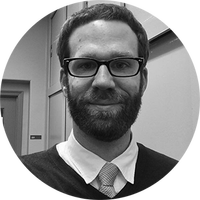Why fake news works
People really believe this stuff. And it's worse than you think.


A free daily email with the biggest news stories of the day – and the best features from TheWeek.com
You are now subscribed
Your newsletter sign-up was successful
Fake news and unsubstantiated rumors have been all over the internet for years. But until recently, a very basic but important question about fake news remained unanswered: Do people believe this stuff, or do they merely support it because it is critical of the political figures they don't like?
This question is at the heart of a new paper from Adam Berinsky, a political scientist at Massachusetts Institute of Technology. And the answer is troubling.
Political rumors and false "news" that circulates on social media can be so far-fetched or ridiculous that it is hard to fathom anyone believing it. But some people do. An especially egregious example is the fabricated "Pizzagate" story. It claimed that Hillary Clinton and other prominent Democrats were running a child sex slavery ring out of a popular pizza restaurant in D.C. Despite being totally ludicrous on its face and lacking any supporting evidence, hundreds of people exposed to the "story" online believed it and harassed the business. It culminated in December of 2016 with an anti-Pizzagate zealot firing three bullets into the restaurant during business hours.
The Week
Escape your echo chamber. Get the facts behind the news, plus analysis from multiple perspectives.

Sign up for The Week's Free Newsletters
From our morning news briefing to a weekly Good News Newsletter, get the best of The Week delivered directly to your inbox.
From our morning news briefing to a weekly Good News Newsletter, get the best of The Week delivered directly to your inbox.
Some people really do believe even the most implausible rumors and lies, it seems. What hasn't been clear is how common this is. Is the problem limited to a fringe of borderline unstable people, or is belief in wild political rumors common? Survey data reveals that many Americans support conspiracy theories. For example, almost half express support for 9/11 conspiracy theories. But surveys are tricky things; support is not the same as believe.
In his new paper, Berinsky tests two political rumors that have no basis in fact: that Barack Obama is secretly a Muslim, and that the George W. Bush administration knew about the 9/11 attacks but intentionally declined to stop them. Predictably, Republicans are more likely to say they believe the Obama-Muslim rumor and Democrats the Bush-9/11 rumor.
But what does it mean when they say they believe it? That is the heart of Berinsky's study. Survey participants may be expressing a true belief, or perhaps they agree with the statement simply because they dislike the political figure it is aimed at. In other words, he sought to find out whether Republicans say they think Barack Obama is a Muslim because they really believe it, or because they just don't like Barack Obama. This latter kind of response is called "expressive."
Religion is a useful metaphor for understanding true beliefs versus expressive thinking. Some religious people consider scriptures like the Bible literally true, word for word. Others believe in the Bible but consider it allegorical or figurative, not factual. In the Obama-Muslim scenario, this is like the difference between a person believing Barack Obama literally is a closet Muslim and a person who agrees because he finds Obama inauthentic, dishonest, or not a "real" American. Such a response doesn't hinge on the factual accuracy of the Obama-Muslim claim.
A free daily email with the biggest news stories of the day – and the best features from TheWeek.com
The bad news is that Berinsky's research offers persuasive evidence that expressive responses are rare. When people say they think Obama is a Muslim, they mean it. They believe that despite documented decades of Christian church attendance (including his often-criticized association with United Church of Christ Reverend Jeremiah Wright) Obama worships Allah and says his prayers to Mecca daily behind closed doors.
This presents a serious problem given the prominence of fake and misleading (intentionally or otherwise) information on the internet and social media, where a growing share of Americans get most of their news.
How do people so readily internalize rumors and falsehoods as facts?
Partisanship or ideology filter and shape political information as we receive it. They are not objective forces, and they promote two common logical fallacies in thinking. First, the classic "Argument from Ignorance" can be applied readily to these rumors; you cannot prove Obama is a Muslim, but I cannot prove he is not. Therefore, no one can answer this definitively so either belief is equally valid. That I can provide supporting evidence that he is a Christian is irrelevant, since I cannot prove conclusively that in secret or in his mind he is not a devotee of Islam.
Motivated reasoning contributes as well. People who do not like Obama (or Trump, or any other politico) are motivated to find information that justified and confirms their existing beliefs. In our eagerness to prove that we are correct, we lower the bar for supporting evidence. "Facts" that make little sense or collapse under scrutiny are often accepted as true when they tell us what we want to hear.
If Berinsky's new research is correct, internet rumors and fake news are a bigger problem in politics than we recognize. Even with a mountain of evidence available to disprove a rumor, some people not only express support for it in polls but also believe it to be literally true. As more Americans turn to social media, consciously or otherwise, to get their news, exposure to the least reputable and most outlandish "news" sources will continue to rise.
Fact-checking after these wild rumors circulate is only minimally effective. Social media companies have devised creative solutions to many problems over the years. If they cannot find ways to stem the flow of unverified, blatantly false information disguised as news, political discourse is likely to get worse before it improves. This isn't harmless fun and games. People believe this stuff.
Ed Burmila is an Assistant Professor of Political Science at Bradley University. He lives in Chicago and blogs politics at Gin and Tacos.
-
 ‘This is something that happens all too often’
‘This is something that happens all too often’Instant Opinion Opinion, comment and editorials of the day
-
 House votes to end Trump’s Canada tariffs
House votes to end Trump’s Canada tariffsSpeed Read Six Republicans joined with Democrats to repeal the president’s tariffs
-
 Bondi, Democrats clash over Epstein in hearing
Bondi, Democrats clash over Epstein in hearingSpeed Read Attorney General Pam Bondi ignored survivors of convicted sex offender Jeffrey Epstein and demanded that Democrats apologize to Trump
-
 The billionaires’ wealth tax: a catastrophe for California?
The billionaires’ wealth tax: a catastrophe for California?Talking Point Peter Thiel and Larry Page preparing to change state residency
-
 Bari Weiss’ ‘60 Minutes’ scandal is about more than one report
Bari Weiss’ ‘60 Minutes’ scandal is about more than one reportIN THE SPOTLIGHT By blocking an approved segment on a controversial prison holding US deportees in El Salvador, the editor-in-chief of CBS News has become the main story
-
 Has Zohran Mamdani shown the Democrats how to win again?
Has Zohran Mamdani shown the Democrats how to win again?Today’s Big Question New York City mayoral election touted as victory for left-wing populists but moderate centrist wins elsewhere present more complex path for Democratic Party
-
 Millions turn out for anti-Trump ‘No Kings’ rallies
Millions turn out for anti-Trump ‘No Kings’ ralliesSpeed Read An estimated 7 million people participated, 2 million more than at the first ‘No Kings’ protest in June
-
 Ghislaine Maxwell: angling for a Trump pardon
Ghislaine Maxwell: angling for a Trump pardonTalking Point Convicted sex trafficker's testimony could shed new light on president's links to Jeffrey Epstein
-
 The last words and final moments of 40 presidents
The last words and final moments of 40 presidentsThe Explainer Some are eloquent quotes worthy of the holders of the highest office in the nation, and others... aren't
-
 The JFK files: the truth at last?
The JFK files: the truth at last?In The Spotlight More than 64,000 previously classified documents relating the 1963 assassination of John F. Kennedy have been released by the Trump administration
-
 'Seriously, not literally': how should the world take Donald Trump?
'Seriously, not literally': how should the world take Donald Trump?Today's big question White House rhetoric and reality look likely to become increasingly blurred
